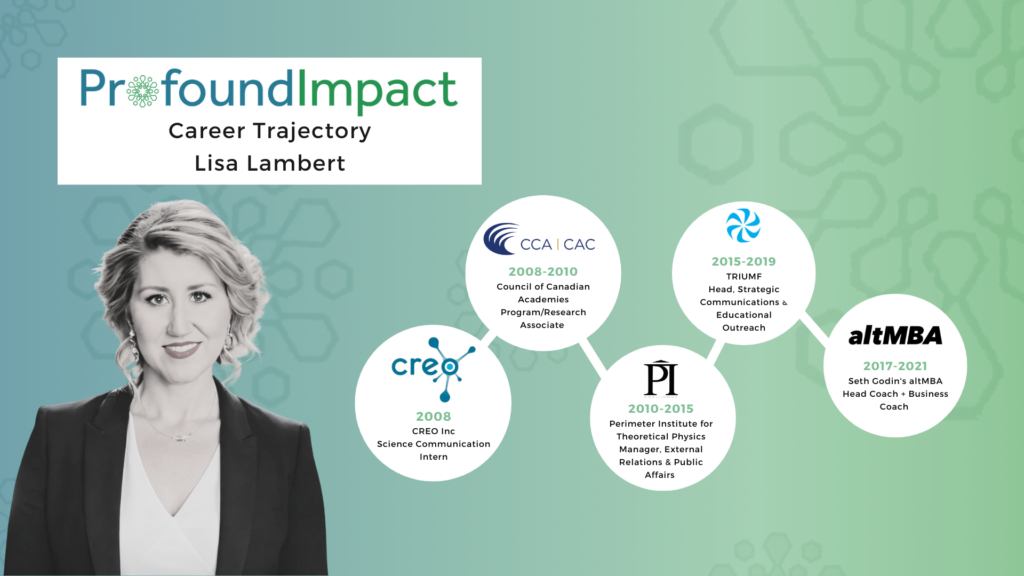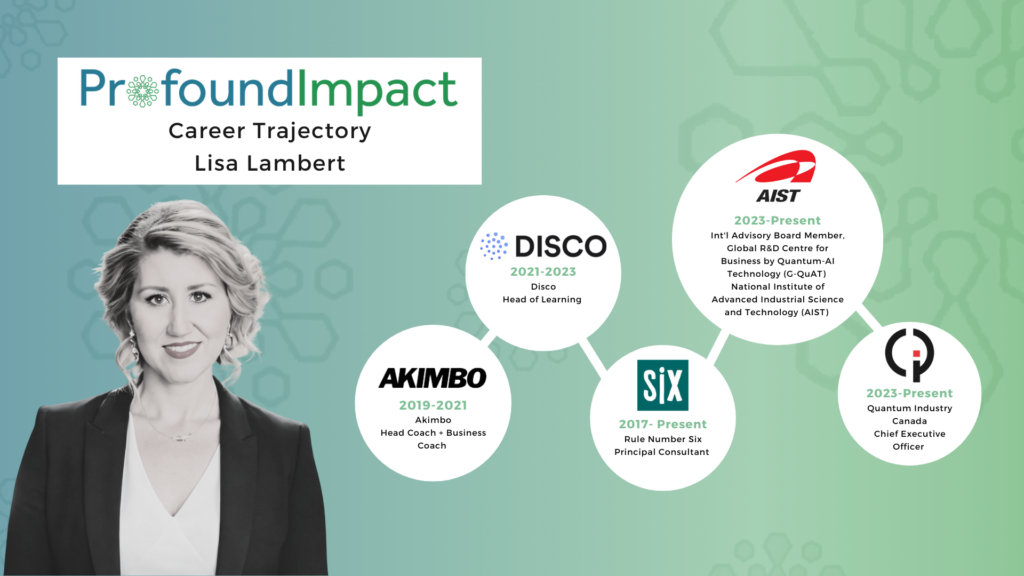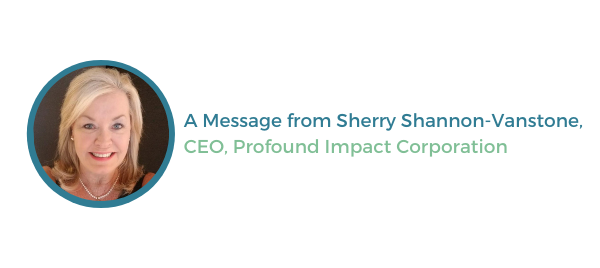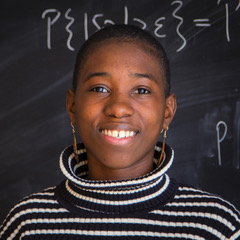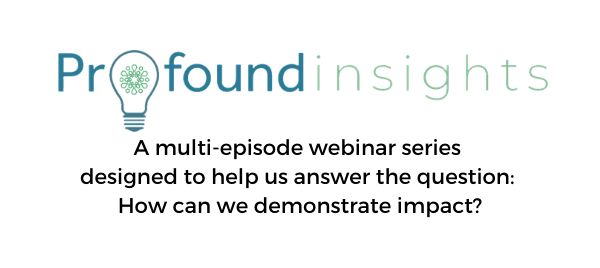Lisa Lambert
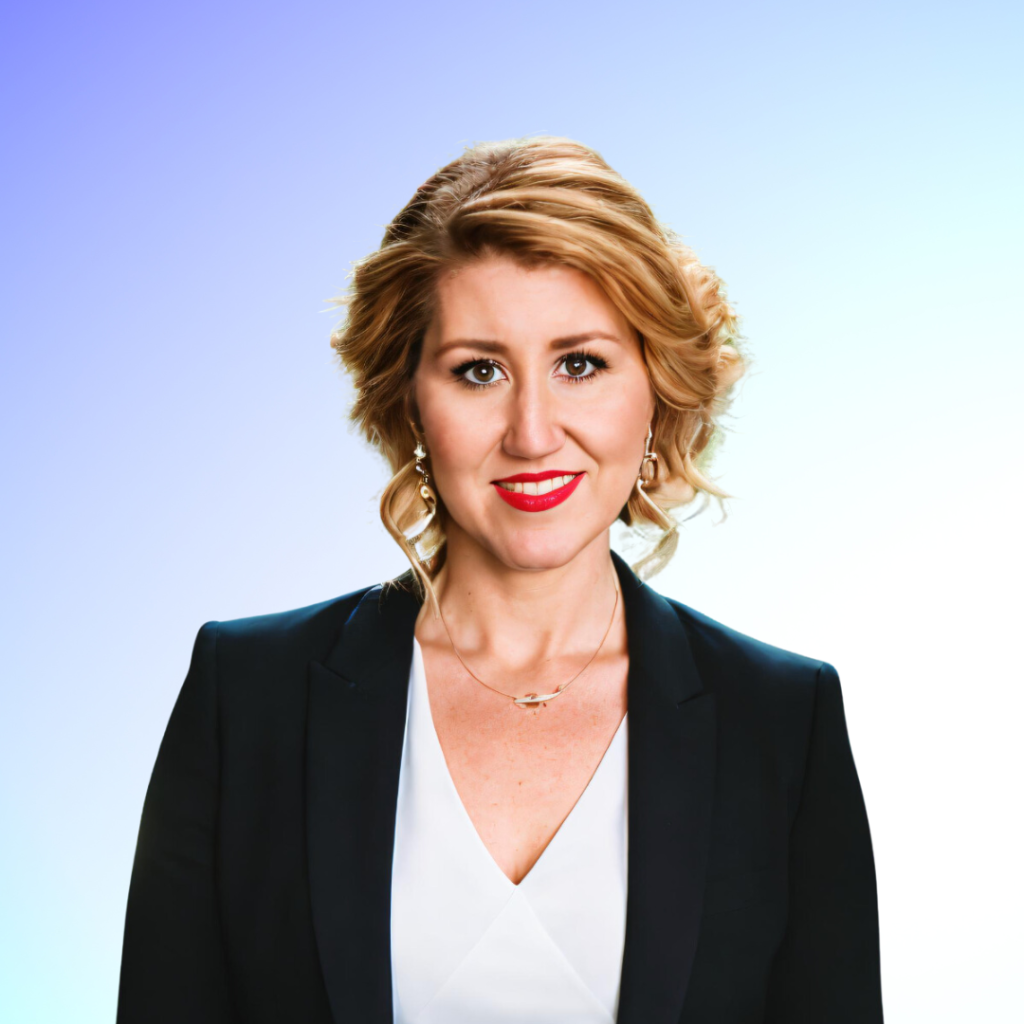
CEO, Quantum Industry Canada
Growing up in small community in Northern Ontario, Lisa Lambert was a curious kid. “I would stare at the night sky, fascinated to know what was going on up there,” she says. “My mother was very patient with me as I was always up to something – building things or taking things apart.”
Her maternal grandfather, a self-trained mechanic and power engineer who loved nature, encouraged her inquisitiveness. “We’d go out for a walk and he would say: ‘Be careful where you trot, this is living stuff.’ He had a second-grade education but was one of the smartest people I’ve ever known. He was civically engaged and cared about how the world worked. I had conversations about politics with him from a young age, which tuned me into the importance of government policy. He taught me to be curious, understand my world, and not take things for granted.” Her grandfather’s wisdom stuck with her and remained inspirational for Lisa as she navigated the path she would follow for her studies and her career.
Lisa wanted to study science and decided to attend Western University in London, Ontario. “We had family friends in London and I knew the city from visits with them,” she says. “I didn’t realize how big the Western campus was, with a student population larger than that of my entire hometown!”
She had planned to pursue an MD and PhD in neuroscience, but her interest in the importance of bridging science to society was sparked by her undergraduate thesis supervisor, who was very involved in science communication outreach in the field of neuroscience. Lisa decided to attend Laurentian University to study Science Communication, the first-and-only program of its kind in Canada offered at the graduate level in collaboration with Science North. “Being such a new field, it was a risk to study science communication instead of enrolling in more traditional graduate training. But it enabled me to chart my own path filled with exciting opportunities to make a difference.”
Lisa’s curiosity has informed her career path. “My formal education was important, but some of my best learning has been from trying new things.” After completing her graduate studies, she worked as an intern at CREO, a Montreal studio that was an innovator in science education projects. Lisa collaborated with creative, production, and technical teams on a range of interactive, game-based projects to ensure that the studio’s award-winning solutions captivated target audiences while incorporating scientific rigour.
Her next position, as one of the first Program/Research Associates at the Council of Canadian Academies in Ottawa, is where she learned about science, technology and innovation policy. “I worked with Peter Nicholson, who had a wealth of experience at the intersection of different areas, and the best experts from across disciplines to learn about how the assessment of evidence on complex scientific topics of public interest is used to inform science policy in Canada.”
Her growing expertise in science communication and public policy served Lisa well in her role as Manager of External Relations and Public Affairs at the Perimeter Institute for Theoretical Physics in Waterloo. “Perimeter had just started construction of the Stephen Hawking wing and was shifting its focus from a national to an international mandate in research and educational outreach,” notes Lisa. “It was a great place to grow as I worked with talented colleagues and researchers on global outreach, external relations, government relations, and special projects to establish Perimeter as a top global brand in the field.”
Prior to joining the leadership team at TRIUMF, Canada’s particle accelerator centre, Lisa was selected as one of 250 emerging leaders across Canada to participate in the Governor General’s Canadian Leadership Conference 2015, a unique two-week program aimed at broadening perspectives on leadership, work, communities, and country. The conference’s theme of Exploring Innovation and Leadership provided Lisa with the opportunity to hone skills in stakeholder engagement, brand development, strategic partnerships, public policy, business transformation, community building, and strategic communications.
Lisa moved to British Columbia to join TRIUMF shortly after a new Executive Director was hired. As part of her responsibilities for transforming communications from a service unit into a strategic function to revitalize strategy, operations, and culture while elevating the global profile, Lisa worked on a fresh approach to a five-year plan that resulted in what was then the largest public investment in the organization’s history.
Early on in her role at TRIUMF, she applied to and was selected as one of 100 high-performers around the world to participate in one of the early cohorts of the altMBA program, a pioneering online leadership development workshop. Founded in 2015 by bestselling author Seth Godin, the altMBA engaged a group of students in an intense four-week process to hone critical leadership skills in decision-making, navigating uncertainty, change management, sales, and marketing. Lisa was recognized with the altMBA’s Winograd Award, a peer-nominated distinction awarded based on the recipient’s generosity in helping others. After completing the program, she was invited to join the coaching team and went on to become a Head Coach in the altMBA and other business workshops led by Godin. “I was exposed to a lot and I learned a lot in that capacity,” says Lisa. After working for four and half years at TRIUMF, Lisa’s curiosity and passion for developing new skills prompted her to consider her next career step.
Lisa’s experience in business coaching led to her founding two consultancies, one where she worked with deep-tech start-ups, helping them land and manage first proof of concepts/pilots and scale partnerships with large companies, the other where she helped organizations successfully navigate change and growth by building trust. She co-authored a book on trust-centred leadership with Rick Kitagawa. The Future is Trust is a concise and practical guide to building trust that became an Amazon bestseller.
“I have been fortunate,” says Lisa. “One of the highlights of my career has been to work with and to learn from Margaret Atwood on her legacy project, Practical Utopias: An Exploration of the Possible powered by Disco.” Lisa collaborated with the world-renowned author, teacher, and environmental activist to develop and deliver a global futures-design experience to explore possibilities for a net-zero future that was centered on community, collaboration, and interaction.
“When the project with Margaret was complete, I wanted to continue to work on advancing transformational solutions and was considering how I could bring my skill set to Canada’s growing clean-tech or quantum sectors,” she adds. While at Perimeter, Lisa had worked with the quantum research community. She reached out to former colleagues and quickly learned her timing couldn’t have been better: Quantum Industry Canada (QIC), the national industry-led consortium of quantum technology companies and allied organizations, was in the process of recruiting its inaugural CEO and Lisa’s experience and expertise was a perfect match for the organization. She joined QIC in October of 2023.
QIC’s mission is to translate the country’s quantum capabilities and strengths into business success and economic prosperity. “Canada has been an early quantum pioneer. As the quantum landscape moves from lab to market, this critical sector presents an enormous opportunity to shape our country’s future for the better,” says Lisa.
As a woman who has worked in largely male-dominated environments, Lisa is pleased to see that the landscape is changing. “I was often the only woman in the room. In Canada in particular, I’m delighted to see that there are a considerable number of extraordinary women in leadership roles in quantum. We are at the dawn of the industry – now is such an important time to have role models to help encourage more young women in the field.”
Lisa Lambert has dedicated her career to driving innovation, execution, and business growth in high-velocity, ever-evolving environments. As a mentor to young entrepreneurs her advice to young people interested in a career in science echoes what she learned from her grandfather: “Go have fun. Explore. Take chances. Never stop learning. Be a professional curiosity seeker!”
